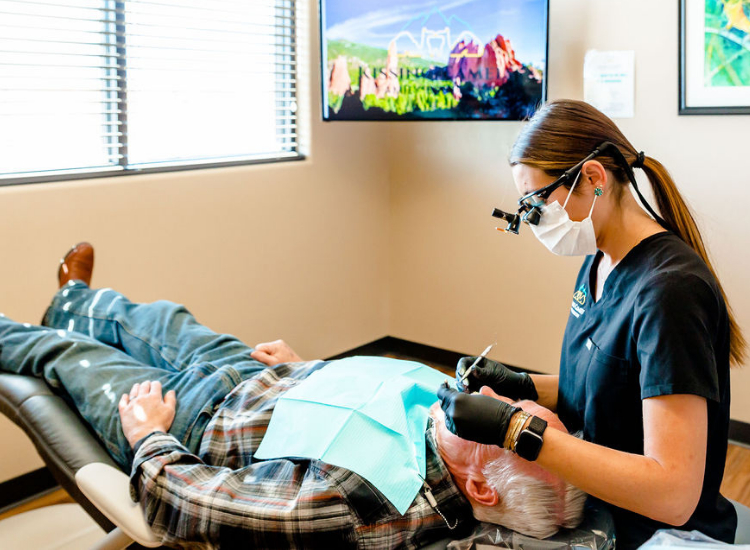Tips On Taking Care Of Your Teeth
Caring For Your Teeth As You Age

A healthy mouth is important at any age, but especially as we get older. Good oral hygiene helps to prevent gum disease, tooth decay, and other problems that can lead to tooth loss. It’s important to brush and floss regularly and to see the best dentist in Colorado Springs CO for regular checkups. Additionally, if you have any existing dental problems, it’s important to get them treated as soon as possible. While it’s true that some degree of tooth loss is inevitable as we age, taking good care of our teeth can help to minimize this. With proper care, our teeth can last a lifetime.
The Way You Brush Your Teeth
Maintaining good oral hygiene is important for several reasons. It helps to prevent tooth decay, gum disease, and bad breath. Additionally, it can help to improve your overall health. brushing twice a day with a toothbrush with soft bristles is a good way to keep your teeth and gums healthy. You may also benefit from using an electric toothbrush. Cleaning between your teeth once a day with floss or another flossing tool helps to remove plaque and bacteria that can cause tooth decay and gum disease. In addition, be sure to visit your dentist in Colorado Springs CO regularly for professional cleanings. By following these simple tips, you can maintain a healthy mouth and improve your overall health.
Visiting Kissing Camels Family Dentistry
A complete dental check-up should be scheduled every six months. During the visit, the dentist will examine your teeth and gums for any signs of problems. They will also assess your risk for tooth decay and gum disease. If necessary, the dentist may take X-rays or perform other tests to get a better idea of your oral health. Based on the findings, they will develop a treatment plan to address any existing problems and prevent future ones from developing. Regular dental check-ups are an important part of maintaining good oral health. Our friends over at New Providence Dentistry, the best dentist in New Providence NJ, say seeing your dentist on a regular basis, you can catch problems early and avoid more serious issues down the road.
Contact Us Today!
At Kissing Camels Family Dentistry, we believe that everyone deserves a healthy and beautiful smile. We are proud to offer a full range of dental services, from routine cleanings and cavities to more complex procedures such as implants and veneers. No matter what your needs may be, we will work hard to ensure that you receive the best possible care. We understand that going to the dentist can be a daunting experience, which is why we take the time to get to know each of our patients and make them feel comfortable. We also offer convenient appointment times and flexible payment options. If you are looking for a family dentist in Colorado Springs, we invite you to contact Kissing Camels Family Dentistry today. We look forward to meeting you!


